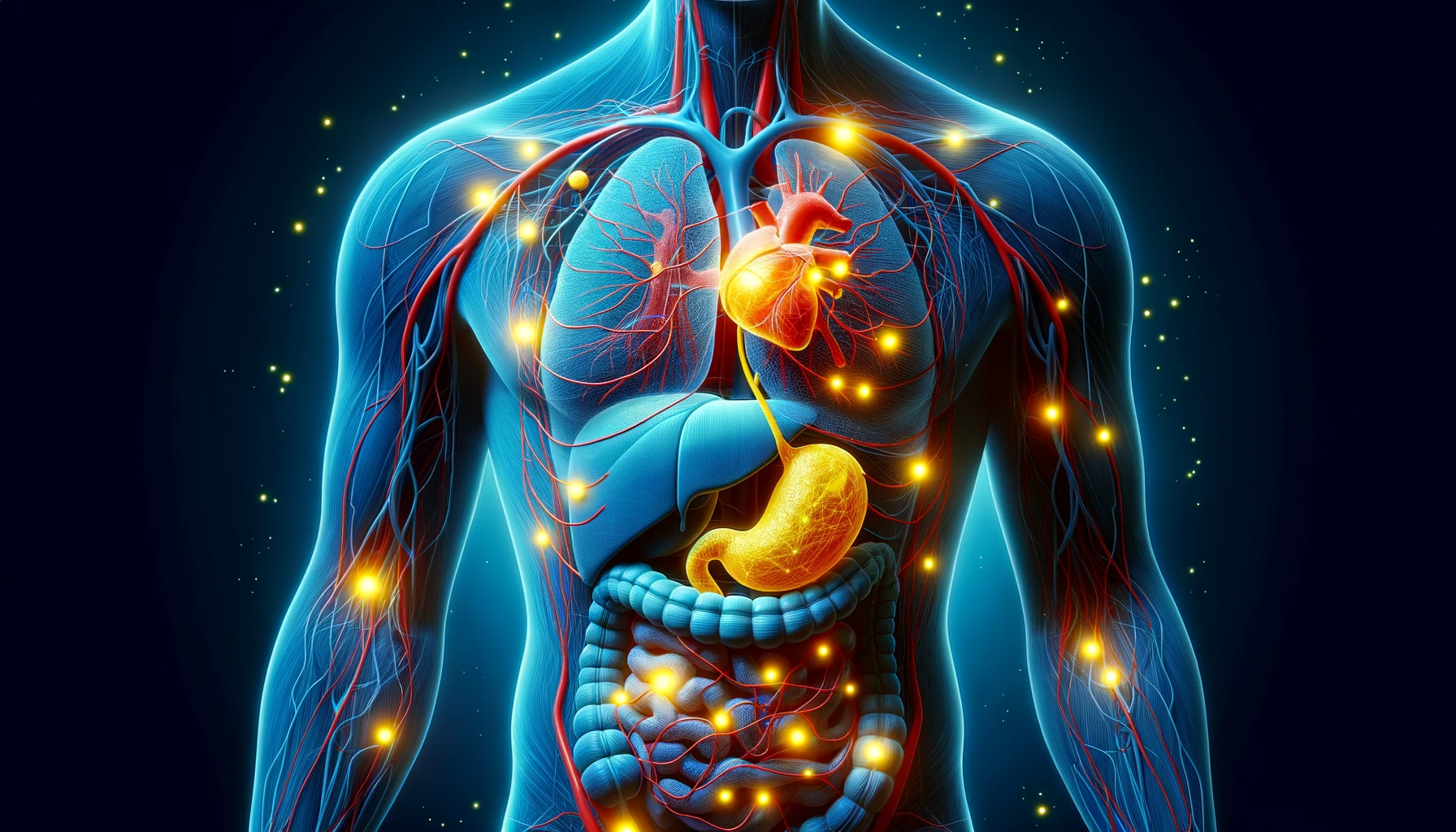The body starts to respond to healthy dietary changes as soon as they are made. This can be advantageous because a diet can then eventually reduce the risk of obesity, diabetes, and heart disease, as well as improve a person's overall sense of well-being.
 Image Credit: Created with the assistance of DALL·E 3
Image Credit: Created with the assistance of DALL·E 3
Control of blood glucose level
Eating carbohydrates increases the blood sugar level, but the extent of this rise depends on a food's glycemic index. The glycemic index is a ranking system, based on a score of 1 to 100, that determines a food's effect on blood sugar levels.
Foods with a high glycemic index are quickly broken down, leading to sharp increases in blood sugar, followed by sharp drops. Sharp fluctuations in the blood sugar level can increase the risk of diabetes, obesity, and heart disease. It follows that avoiding foods with a high glycemic index, such as soft drinks, candy, and white bread, can lower these risks.
Ensuring a steady blood sugar level by opting for foods with a low glycemic index sustains the body's energy levels. The spike in blood sugar and the drop that follows is avoided, and energy levels are sustained. A steady blood glucose level can also prove beneficial since a lowered blood sugar, common after a spike, can disrupt the ability to concentrate and learn.
Coffee and cortisol
Cutting down on coffee can reduce the "stress hormone" cortisol level in the body. A high cortisol level can decrease a person's ability to manage pressure and can also be damaging to the immune system. Caffeine increases these adverse effects of the hormone, and reducing coffee intake can immediately help limit cortisol's adverse effects.
Severe calorie restriction
Severe calorie restriction impedes weight loss rather than aiding it since it prevents the body from burning fat effectively. The body behaves as if it is being starved as a defense mechanism and becomes highly efficient at using the energy available to it. It starts to protect any stores of fat and derives energy from muscle and lean tissue instead. This results in muscle loss and, therefore, a lower metabolism, so that fewer calories are needed. This lowered metabolism, in turn, slows weight loss down.
The metabolic rate is affected by the degree of muscle mass - the metabolic rate is higher in those with more muscle mass. Muscle burns many more calories than fat, and losing muscle reduces the metabolic rate and the number of calories burned.
It is essential that people maintain a healthy metabolic rate, particularly when they are dieting, and this requires them to both diet and exercise sensibly. Strength-enhancing exercises are particularly effective at increasing muscle mass. For every additional pound of muscle a person develops, the body burns up approximately 50 more calories daily.
To avoid an unhealthy drop in the metabolic rate, experts generally recommend calorie intake is never restricted to less than 1,000 to 1,200 calories per day.
Further Reading
Last Updated: Oct 24, 2023